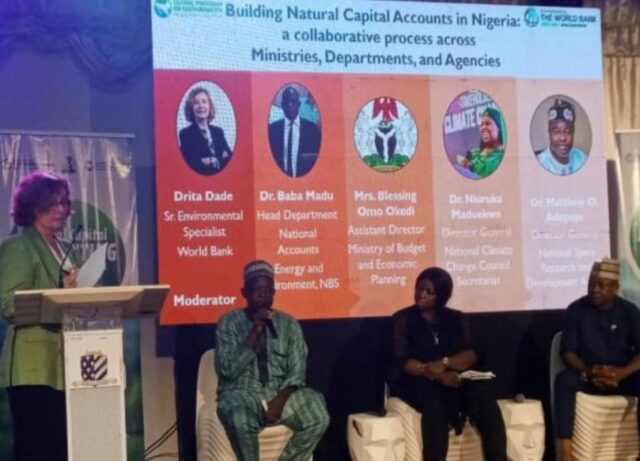The World Bank says it is collaborating with key government agencies, including the National Bureau of Statistics (NBS) and the National Climate Change Council Secretariat, to institutionalise Natural Capital Aacounting (NCA) as part of Nigeria’s national development framework.
The World Bank’s Programme Leader on Sustainable Development, Vinay Vutukuru, disclosed this in Abuja on Thursday during a one-day technical workshop on advancing the integration of environmental assets such as forests, minerals, and water bodies into Nigeria’s economic planning and reporting systems.
Vutukuru emphasised the crucial role of NCA in supporting Nigeria’s ambitious climate and development goals.
“Establishing natural capital accounting as part of the national account system will allow us to measure the economic value of ecosystem services.
“These will be essential for our well-being and economic prosperity,” Vutukuru said.
Vutukuru noted that while Nigeria had made commendable commitments such as achieving net-zero emissions by 2060 and reducing emissions by 20 per cent by 2030 under an unconditional framework, these targets must be supported by robust data and monitoring systems.
“To back up these aspirations, a strong natural capital accounting system is foundational. Without it, Nigeria won’t be able to measure whether it has reached its goals,” he said.
He added that the workshop focused on two key objectives which includes mainstreaming and institutionalising natural capital accounting across all relevant government ministries and agencies.
He said it also included and ensuring sustainability of these systems beyond World Bank support.
“As the World Bank prepares Nigeria’s Climate and Development Report, we recognide the bold ambitions the country has set.
“Now, it is about laying down the systems that will make those ambitions achievable,” Vutukuru explained.
Also, Dr Baba Madu, Head of the National Accounts, Energy and Environment Department at the NBS, highlighted the importance of the NCA steering committee’s role in ensuring that natural capital is accurately reflected in the country’s economic measurements.
“You cannot truly assess a nation’s economy without accounting for the value of its natural resources.
“Issues like environmental degradation, afforestation, and desertification all have direct impacts on GDP,” Madu said.
Representing the Director General, National Climate Change Council Secretariat, Mrs Chioma Amudi reaffirmed the Council’s commitment to ensuring inclusive stakeholder engagement in promoting NCA nationwide.
She assured of the Council’s support for developing a comprehensive, data-driven template to guide the NBS in implementing the initiative.
The workshop also featured expert presentations from representatives of the Kenya National Bureau of Statistics, Zambia’s Ministry of Finance and National Planning, and other global experts.











